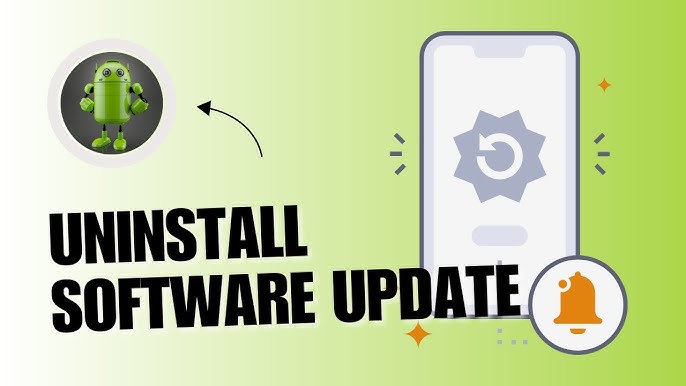In today’s hyper-connected world, our smartphones have become indispensable tools for both personal and professional life. However, there are times when turning off your Android phone or iPhone can be beneficial. Whether it’s to conserve battery life, resolve technical glitches, or take a break from constant notifications, powering down your device offers several advantages.
Turning off your phone allows for a complete reset of the system, which can help eliminate minor software issues and improve overall performance. It’s also an effective way to extend battery life, as it stops all background processes that may drain power. Additionally, taking a break from screen time can contribute to better mental well-being and reduce stress.
For iPhone users, the process involves holding down the power button and sliding the “slide to power off” slider. Regularly turning off your device can help maintain its efficiency and ensure a more pleasant user experience.
Read Also: Helpful Guide to Check Notification History on Android
How to Power Down Your iPhone
To power down your iPhone, follow these steps:
Locate the Power Button:
- On iPhone X and later models: The power button is located on the right side of the device.
- On iPhone 8 and earlier models: The power button is on the top or right side of the device.
Press and Hold the Power Button:
- For iPhone 8 and earlier models, press and hold the power button until the “slide to power off” slider appears on the screen.
Slide to Power Off:
- Drag the slider from left to right to initiate the shutdown process.
Wait for the Device to Turn Off:
- The screen will go dark as the device powers down. Wait a few moments to ensure the phone has fully shut off.
Turning It Back On:
- To turn your iPhone back on, press and hold the power button until you see the Apple logo on the screen. Once the logo appears, release the button, and the device will start up.
These steps will help you safely power down your iPhone and can assist with troubleshooting issues or conserving battery life.
Benefits of Regularly Restarting Your Smartphone
Regularly restarting your smartphone can offer several benefits, including:
Improved Performance:
- Restarting your device helps clear temporary files and close background apps that may be slowing down.
Enhanced Battery Life:
- By closing unnecessary apps and processes, restarting your phone can help reduce battery drain and extend battery life.
Resolution of Minor Issues:
- Many software glitches and bugs can be resolved with a simple restart. This can fix issues like app crashes, connectivity problems, or unexpected behavior.
Memory Management:
- Restarting frees up RAM and refreshes system resources, which can prevent apps from slowing down or freezing due to memory leaks or overload.
System Updates:
- Some system updates and patches require a restart to be fully implemented. Regular restarts ensure that your device is running the latest software and security updates.
Improved Connectivity:
- Restarting can resolve issues with Wi-Fi, Bluetooth, and cellular connections by resetting network settings and re-establishing connections.
Longer Device Lifespan:
- Regular restarts help maintain your device’s health by preventing prolonged strain on its hardware and software components.
Incorporating regular restarts into your routine can help keep your smartphone running efficiently and extend its overall lifespan.
How Often Should You Turn Off Your Phone?
The frequency with which you should turn off your phone can depend on your usage patterns and needs. Here are some general guidelines:
Weekly Restart:
- For most users, a weekly restart is sufficient to maintain performance and resolve minor software issues. This helps clear temporary files and free up system resources.
Daily Restart (if needed):
- If you notice your phone slowing down, experiencing connectivity issues, or having apps that crash frequently, a daily restart might be beneficial until the problems are resolved.
After Major Updates:
- Restart your phone after installing major system updates or app updates to ensure that all changes are correctly applied and to improve system stability.
During Long Periods of Inactivity:
- If you’re not using your phone for an extended period, such as while traveling or during a vacation, it’s a good idea to turn it off to save battery life and avoid potential security risks.
When Experiencing Issues:
- If you encounter persistent issues like freezing, crashing apps, or connectivity problems, turning off and restarting your phone can resolve these problems.
Ultimately, listening to your phone’s performance and noting any issues can help you determine how often to turn it off. Regular restarts, even if not daily, contribute to better device health and functionality.
Frequently Asked Questions
Will turning off my phone delete any data?
No, turning off your phone does not delete any data. Your apps, files, and settings remain intact.
Can turning off my phone improve battery life?
Yes, turning off your phone stops background processes that can drain the battery, helping to conserve power.
What if my phone is frozen and I can’t turn it off usually?
On Android, this often involves having the power button for about 10-20 seconds.
Will turning off my phone affect my notifications?
Yes, when your phone is turned off, you will not receive notifications. They will appear when you turn the phone back on.
How do I turn my phone back on after it’s been off?
Press and hold the power button until the screen lights up and the logo appears. The phone will boot up and return to its home screen.
Conclusion
Powering down your Android phone or iPhone is a straightforward yet powerful practice that can significantly. Regularly powering down your phone helps to clear temporary files, resolve minor software glitches, and manage system resources more efficiently. It also conserves battery life by stopping background processes and can provide a much-needed break from constant notifications and screen time. Whether you’re dealing with performance issues, aiming to extend battery life, or simply taking a digital detox, turning off your phone offers multiple benefits.

